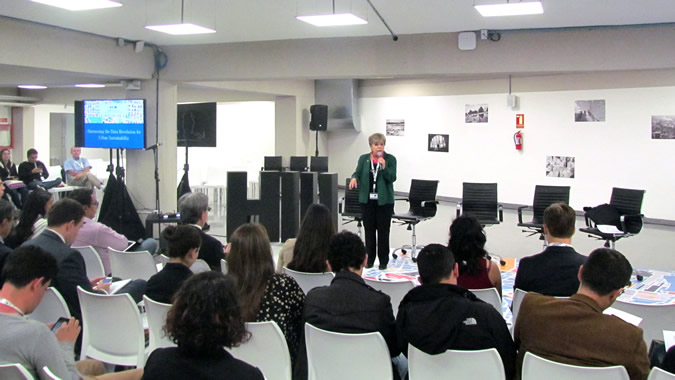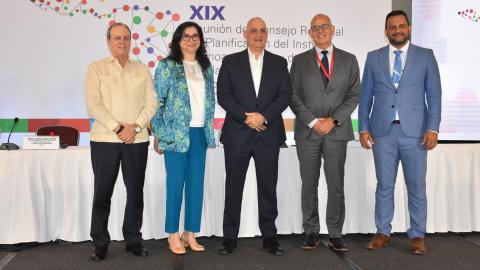Announcement
At the Habitat III Conference in Quito, Alicia Bárcena, Executive Secretary of the Economic Commission for Latin America and the Caribbean (ECLAC), today urged harnessing the data revolution to enhance decision-making and results measurement, and to put real-time information into the hands of the public in order to promote sustainable development. This is a challenge in which cities, home to 79.5% of the region’s population, play a key role.
“We must put information at the service of citizens in a timely manner,” said the most senior representative of ECLAC at the event “Harnessing the Data Revolution for Urban Sustainability ,” organized by the Department of State of the United States as a side event at the United Nations Conference on Housing and Sustainable Urban Development, being held from 17 to 20 October in Ecuador’s capital city.
This event affords continuation to a dialogue which took place last September in the framework of the United Nations General Assembly in New York. On that occasion, the relevance of the data revolution was discussed in relation to climate change and resilience to extreme events.
Bárcena emphasized that the world is in the throes of a digital revolution as a result of which, in Latin America and the Caribbean, the percentage of the population using the Internet jumped 20 percentage points between 2010 and 2015, to reach 54.4%, according to ECLAC data. The Executive Secretary said that broadband must be viewed as a public good in order to continue increasing access to the Internet.
This digital revolution translates into a revolution of data that is being generated by different players. “Data have to be accessible to everyone and in open formats, for the sake of transparency and accountability,” emphasized Bárcena. “We need reliable data from public and private sources for implementation of the New Urban Agenda to be adopted here in Quito, as well as for the 2030 Agenda for Sustainable Development and the Paris Agreement on climate change,” she said.
Bárcena explained that the data revolution now unfolding could help, for example, to improve response capabilities in the event of natural disasters and to evaluate they damage they cause. In this area, ECLAC calculates that the region suffered 2,219 extreme natural events between 1972 and 2014, in which 520,000 were killed and 230 million suffered losses, with an economic impact of some US$ 350 billion between 1970 and 2014.
Bárcena, a senior official with the United Nations, said that ECLAC would be willing to share this sort of information with the Partnership for Resilience and Environmental Preparedness (PREP), a public-private initiative to build an open data platform aimed at improving decision-making with a view to increasing resilience to climate change.
The Executive Secretary recalled that ECLAC is also working with the Global Partnership for Sustainable Development Data, which was launched in 2015 and engages governments, international organizations, business and civil society in generating and disseminating timely information to support sustainable development. This initiative is the outcome of recommendations contained in a report on the data revolution delivered in 2104 to the Secretary-General of the United Nations by an expert group in which Alicia Bárcena took part.
As an example of the drive for transparency and civil society participation, Bárcena also referred to the process of implementation of Principle 10 of the Rio Declaration on Environment and Development in Latin America and the Caribbean. In this process, ECLAC serves as technical secretariat for the ongoing negotiation of a regional agreement on rights of access to information, participation and justice in environmental matters.



